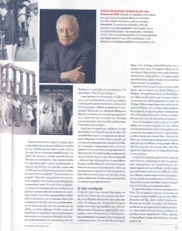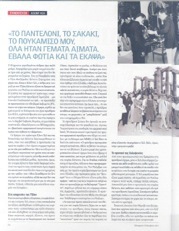Kenneth Atchity's Blog, page 217
February 15, 2013
Join Me At The Santa Barbara Author-Mentor Workshop February 28 - March 3

 The Santa Barbara Author-Mentor is a unique and intimate novel workshop that takes place on February 28 - March 3, 2013.
The Santa Barbara Author-Mentor is a unique and intimate novel workshop that takes place on February 28 - March 3, 2013.It provides an ideal mix of experienced professionals dedicated to
working one-on-one with aspiring authors to not only teach them the
knowledge and skills they must have to be successful, but also provide
them with valuable commentary on their completed novel or
work-in-progress.
Faculty include Pulitzer Prize-winning authors Jane Smiley and Robert Olen Butler, literary agent of renown Kimberley Cameron, agent and major film producer Ken Atchity, writer/author and popular columnist Cary Tennis, and Algonkian director and editor, Michael Neff. More on them below.
Ken Atchity
Literary Agent and Film Producer
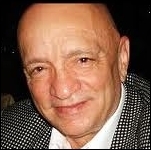
With more than forty years experience in the publishing world, and over fifteen years in entertainment, Ken Atchity and his organization
are responsible for launching dozens of books and films. His life's
passion is finding great storytellers and turning them into bestselling
authors and screenwriters. As well as being a famed literary agent at
AEI, he has produced 26 films, including "Joe Somebody" (Tim Allen;
Fox), "Life or Something Like It" (Angelina Jolie; Fox), "Shadow of
Obsession" (NBC), "The Madam's Family" (CBS), "Henry's List of Wrongs"
(New Line), and Ripley's Believe-It-Or-Not (starring Jim Carrey;
Paramount-- approaching production). His 14 books on writing cover every
stage of a writer's career.



The
Santa Barbara Author-Mentor Novel Workshop creates an intimate and
professional environment that combines private meetings with small-group
workshops, thus enabling aspiring authors to wisely approach the
writing and publication of their novel. At the Santa Barbara event,
aspiring authors will: 1) work one-on-one with top authors and savvy
market professionals; 2) acquire the market skills and advanced story
and narrative technique they must know to become published; 3) learn the
necessary inside mechanics of the publishing business; and 4) leave the
workshop with a detailed plan to work towards publication of their
novel ... [more]
How Does The Santa Barbara Author-Mentor Workshop Differ from Other Writer Events?
 In several fundamental ways, as we note above, but we will elaborate. First
In several fundamental ways, as we note above, but we will elaborate. Firstof all, and most importantly, the Santa Barbara AMW creates a way for
the writer to get close and relaxed with authors and professionals in a
manner that larger events disallow. Private face time with the right
people is priceless.
Second, attendees are taught (even before the workshop begins by
means of pre-event assignments and mailings) to address all the major
conflict/complication, plot, theme, narrative/voice, dialogue, scene
construction, and character arc-and-development issues that affect their
novel.
Third, writers are prepped in advance for their interactive
sessions with authors and literary agents, and the sessions are not
rushed. The authors and agents are relaxed during the sessions and not
bombarded by hundreds of conference goers.
Fourth, the Santa Barbara AMW requires the writer to complete
exercises far more advanced and beneficial than those conducted at other
conference workshops.
Fifth, amateur opinions do not arise to compromise the quality of
the workshop. Judgments on a writer's work are approved, filtered,
and/or provided by professionals in attendance.
Come Prepared to Write and Learn From The Best
Because this workshop accepts far fewer writers than most conferences,
those writers who are accepted are given more time to establish
relationships with professionals who are present; and unlike several
major celeb conferences, Santa Barbara AMW doesn't simply import name
authors or agents to give inspirational messages and smile over
cocktails.
Our prize-winning faculty are there to meet with writers in a setting
conducive to productive discussion of writing and publishing. Writers with manuscripts will have an opportunity to pitch their work,
and writers with works-in-progress will be able to network and learn
about the publishing biz. To read more information about our approach,
click on Frequently Asked Questions.
The Santa Barbara AMW employs the Algonkian workshop syllabus as well as
the Algonkian study guide and reference manual. Once you've examined
them, it will be obvious that literary craft at the Santa is taught
more exhaustively than craft at other workshops and conferences. [more]
 The Villa Rosa Inn
The Villa Rosa Innis one of the finest Santa Barbara inns, combining an ideal location
with the sort of personalized attention you'd expect from the area's top
bed and breakfast inn. Every room at the Villa Rosa boasts a
spectacular view, whether of the ocean, the harbor, the mountains, or
their beautiful garden courtyard. The inn also offers deluxe rooms with
fireplaces. Its location is only 84 steps away from Santa Barbara's
stunning East Beach, as well as an easy stroll away from famous Stearns
Wharf, with its numerous shops, restaurants, and activities.
The inn provides a deluxe continental breakfast daily, so you can sit
back and enjoy the morning. For total relaxation, you can lounge by the
pool or soak in the spa in the garden courtyard. Later in the day, you
can enjoy mingling with other writers and faculty around complimentary
wine and cheese or evening port and sherry.
The Villa Rosa Inn is a unique environment that offers all of the
amenities associated with larger resort hotels, while maintaining the
intimacy of a small inn. The quality of construction, the ambiance of
the interior design and the attentive, personable staff ensure that no
detail is overlooked.
We could not have chosen a more suitable location for this type of intimate workshop.

Algonkian Writer Conferences
2020 Pennsylvania Avenue, NW, Ste 443
Washington, DC 20006
Algonkian Home Office:
Phone: 1-800-250-8290
algonkian@webdelsol.com

Published on February 15, 2013 00:00
AEI Associate Richard Rappaport's New Book
STAR! Finding Artistic and Commercial Success in the New Entertainment Industry
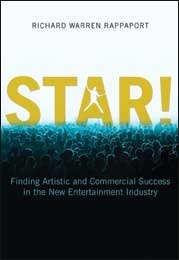
Click on Image to Purchase
This book is about finding artistic and commercial success within the new entertainment industry. It was written for anyone who is involved within the industry and the world of motion pictures, television, music, the literary arts, fashion and modeling, the visual arts and the fine arts, or any other area of the creative arts.
Covering all major genres of entertainment, it presents a unique overview of the artistic, business, and legal aspects of the industry. To accomplish this, it provides in-depth interviews with some of the most prominent attorneys in the country practicing in entertainment law, including entertainment-related transactions and litigation, corporate law, tax law, trust and estate law, accounting, and wealth management and preservation. It also provides interviews of experienced industry professionals who are producers, actors, screenwriters, novelists, musicians, vocalists, songwriters, choreographers, comediennes, photographers, visual artists, personalities, hosts and spokespersons, literary managers, talent managers, acting coaches, former agents, editors, specialists in marketing and promotion, publicists, motivational psychologists, and others in the world of entertainment.
Taken together, the interviews provide a sense of the intricate texture and fascinating mosaic that constitutes the entertainment industry, as seen by Hollywood insiders who discuss the delicate balance between artistry and commercialism on the path to success within the industry.
This book is for all those who work in the world of entertainment, including attorneys practicing in entertainment, arts and sports law, media law, the law of the Internet, communications law, intellectual property law, and corporate and international law, who are involved in advising clients in the expanding world of the entertainment industry, both domestically and internationally.
It is also for producers, directors, cinematographers, agents, actors, screenwriters, novelists, musicians, vocalists, songwriters, composers, personalities, hosts, spokespersons, models, visual artists, personal managers, business managers, literary managers, writing coaches, editors, publicists, undergraduate, graduate, or law students, and anyone who has a serious artistic and professional interest in the industry. In essence, if you wish to understand the fascinating world of the new entertainment industry, this book is for you.
Praise for Star!
"For anyone who wants to understand the creative essence of artistry and find true success in the new entertainment industry."
-Producer Mark W. Koch, (Lost in Space, The Perfect Game) Prelude Pictures, West Palm Beach and Los Angeles
"Everything you need to navigate Hollywood waters."
-Producer and Literary Manager Ken Atchity, (Life or Something Like It, The Madam's Family, Hysteria), Atchity Entertainment International, Los Angeles
"Required reading and an inspiration for those pursuing a career in film, television, music, and the new media."
-Pat Quinn, Quinn Media Management, Los Angeles; Adjunct Faculty, Dodge College of Film and Media Arts, Chapman University
"A unique and refreshing approach to the complexity of the entertainment industry."
-Peter Dekom, Esq., A Law Corporation, Los Angeles
"Read this book and don't turn back! STAR! is a practical guide to making dreams come true as you follow your passion in the
entertainment industry."
-Laurel G. Bellows, Esq., The Bellows Law Group, Chicago; President, American Bar Association (2012-13)

Click on Image to Purchase
This book is about finding artistic and commercial success within the new entertainment industry. It was written for anyone who is involved within the industry and the world of motion pictures, television, music, the literary arts, fashion and modeling, the visual arts and the fine arts, or any other area of the creative arts.
Covering all major genres of entertainment, it presents a unique overview of the artistic, business, and legal aspects of the industry. To accomplish this, it provides in-depth interviews with some of the most prominent attorneys in the country practicing in entertainment law, including entertainment-related transactions and litigation, corporate law, tax law, trust and estate law, accounting, and wealth management and preservation. It also provides interviews of experienced industry professionals who are producers, actors, screenwriters, novelists, musicians, vocalists, songwriters, choreographers, comediennes, photographers, visual artists, personalities, hosts and spokespersons, literary managers, talent managers, acting coaches, former agents, editors, specialists in marketing and promotion, publicists, motivational psychologists, and others in the world of entertainment.
Taken together, the interviews provide a sense of the intricate texture and fascinating mosaic that constitutes the entertainment industry, as seen by Hollywood insiders who discuss the delicate balance between artistry and commercialism on the path to success within the industry.
This book is for all those who work in the world of entertainment, including attorneys practicing in entertainment, arts and sports law, media law, the law of the Internet, communications law, intellectual property law, and corporate and international law, who are involved in advising clients in the expanding world of the entertainment industry, both domestically and internationally.
It is also for producers, directors, cinematographers, agents, actors, screenwriters, novelists, musicians, vocalists, songwriters, composers, personalities, hosts, spokespersons, models, visual artists, personal managers, business managers, literary managers, writing coaches, editors, publicists, undergraduate, graduate, or law students, and anyone who has a serious artistic and professional interest in the industry. In essence, if you wish to understand the fascinating world of the new entertainment industry, this book is for you.
Praise for Star!
"For anyone who wants to understand the creative essence of artistry and find true success in the new entertainment industry."
-Producer Mark W. Koch, (Lost in Space, The Perfect Game) Prelude Pictures, West Palm Beach and Los Angeles
"Everything you need to navigate Hollywood waters."
-Producer and Literary Manager Ken Atchity, (Life or Something Like It, The Madam's Family, Hysteria), Atchity Entertainment International, Los Angeles
"Required reading and an inspiration for those pursuing a career in film, television, music, and the new media."
-Pat Quinn, Quinn Media Management, Los Angeles; Adjunct Faculty, Dodge College of Film and Media Arts, Chapman University
"A unique and refreshing approach to the complexity of the entertainment industry."
-Peter Dekom, Esq., A Law Corporation, Los Angeles
"Read this book and don't turn back! STAR! is a practical guide to making dreams come true as you follow your passion in the
entertainment industry."
-Laurel G. Bellows, Esq., The Bellows Law Group, Chicago; President, American Bar Association (2012-13)

Published on February 15, 2013 00:00
February 13, 2013
Hollywood Producer ‘Jerry Weintraub’ – The Top 5 Ways To Sell Ice To An Eskimo
Jerry Weintraub’s 5 Tips On The Art of Persuasion
1. Be persistent.
Do not hear the word no. Almost every time I have a new idea, someone
says, “No, that will never work.” But to me, “no” is just an
opportunity to convince someone to say “yes.” When you hear “no,” you
say “What? Say that again, I didn’t catch that.” If someone says “Get
lost,” you say, “Go where?” Keep knocking, keep pitching, and the door
will open for you.
2. Have conviction.
 Act
Act
as if the result you want has already been achieved. When I first
signed John Denver he had only one genuine hit, but I still called his
next record John Denver’s Greatest Hits, making it seem to the public as
if he was already a star, like they’d known his music forever. They
already loved him — they always had. I knew Denver was a star; I could
feel it, and I believed it. And the rest is history.
3. Respect yourself.
This is key. If you respect yourself, you will be treated with
respect. Consider my relationship with the great Chicago power broker
Arthur Wirtz. Wirtz was a huge man, 6-foot-6, all power, a very
intimidating guy. When I first went to meet him, he made me wait outside
his office for hours. He did not even look up when I finally walked in,
just sat at his desk signing checks. Then, from the side of his mouth,
he said, “Yeah, what d’ya want?” So you know what I said? I said
“[bleep] you!” Why? Because he was not treating me with respect. He
looked up at me and smiled. I was no longer one of the thousands of
faceless nobodies asking him for a favor, but an individual. After that,
we forged a relationship that lasted for years.
4. Be creative.
 Think
Think
your way around problems, come up with novel solutions, improvise. If
you think you have failed, you simply haven’t thought hard enough. As an
example, watch the animated video here about the first show I did with
Elvis. I had 5,000 unsold seats in a 10,000 seat arena with only hours
until showtime. Big problem. I was never going to find enough people to
fill the seats. But I quickly realized a solution: not more people, but
fewer seats. 5,000 to be exact, unscrewed from the floor and carried out
the door. Voila. No more empty seats.
5. Go nuts.
I don’t mean go crazy, I mean reach for the moon. Most people think
that if it hasn’t been done, it can’t be done. But if it hasn’t been
done, that probably just means it hasn’t been tried. This is the story
of my life, the kid who tries what no one thought to try before: putting
on concert tours in sports stadiums, selling the greatest hits of an
artist that has only one hit, having the greatest singer in the world
(Sinatra) perform in a boxing ring in the heart of New York City. Listen
to me: It is OK to fail. Fail and fail, again and again. You learn by
failing. And if you fail 10 times for every one success, then why not
fail a thousand times? It will make your success into a legend.
Read More

1. Be persistent.
Do not hear the word no. Almost every time I have a new idea, someone
says, “No, that will never work.” But to me, “no” is just an
opportunity to convince someone to say “yes.” When you hear “no,” you
say “What? Say that again, I didn’t catch that.” If someone says “Get
lost,” you say, “Go where?” Keep knocking, keep pitching, and the door
will open for you.
2. Have conviction.
 Act
Actas if the result you want has already been achieved. When I first
signed John Denver he had only one genuine hit, but I still called his
next record John Denver’s Greatest Hits, making it seem to the public as
if he was already a star, like they’d known his music forever. They
already loved him — they always had. I knew Denver was a star; I could
feel it, and I believed it. And the rest is history.
3. Respect yourself.
This is key. If you respect yourself, you will be treated with
respect. Consider my relationship with the great Chicago power broker
Arthur Wirtz. Wirtz was a huge man, 6-foot-6, all power, a very
intimidating guy. When I first went to meet him, he made me wait outside
his office for hours. He did not even look up when I finally walked in,
just sat at his desk signing checks. Then, from the side of his mouth,
he said, “Yeah, what d’ya want?” So you know what I said? I said
“[bleep] you!” Why? Because he was not treating me with respect. He
looked up at me and smiled. I was no longer one of the thousands of
faceless nobodies asking him for a favor, but an individual. After that,
we forged a relationship that lasted for years.
4. Be creative.
 Think
Thinkyour way around problems, come up with novel solutions, improvise. If
you think you have failed, you simply haven’t thought hard enough. As an
example, watch the animated video here about the first show I did with
Elvis. I had 5,000 unsold seats in a 10,000 seat arena with only hours
until showtime. Big problem. I was never going to find enough people to
fill the seats. But I quickly realized a solution: not more people, but
fewer seats. 5,000 to be exact, unscrewed from the floor and carried out
the door. Voila. No more empty seats.
5. Go nuts.
I don’t mean go crazy, I mean reach for the moon. Most people think
that if it hasn’t been done, it can’t be done. But if it hasn’t been
done, that probably just means it hasn’t been tried. This is the story
of my life, the kid who tries what no one thought to try before: putting
on concert tours in sports stadiums, selling the greatest hits of an
artist that has only one hit, having the greatest singer in the world
(Sinatra) perform in a boxing ring in the heart of New York City. Listen
to me: It is OK to fail. Fail and fail, again and again. You learn by
failing. And if you fail 10 times for every one success, then why not
fail a thousand times? It will make your success into a legend.
Read More

Published on February 13, 2013 00:00
February 12, 2013
Be at the Next Author 101 University March 7 - 10 Los Angeles

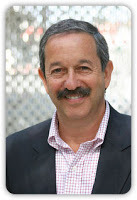
Is your book written yet? If its not... do you know about the amazing benefits being a published author can bring to your business?
If your book is written, is it a bestseller yet?
If it is a bestseller, is it getting you the opportunities you'd dreamed of?
My friend, Rick Frishman has helped thousands of authors find the secrets they need to get their books published and make their dreams come true. And he can help you too.
For the last eleven years, Rick has put on an event called Author 101 University.
New and established authors from around the globe all come together in one ballroom to learn from some of the world's leading marketing and publishing experts.
Everyone has a lot of fun and most importantly, everyone walks away with what they need so they can grow their success as an author.
Come to Rick's next Author 101 University. Here's what can happen for you there...In one weekend, you'll:
* Connect with literary agents who want to represent you
* Get your new book published or your old book revitalized
* Make your book a bestseller
* Learn how to turn your online promotions into huge
exposure (and sales)
* Transform your message into a mega success business
* Network with truly amazing people - Author 101 University
consistently draws a great group
* And so much more...
Your dream doesn't have to be just a dream. Learn More Here

Published on February 12, 2013 00:00
February 11, 2013
Guest Post: Will the Copyright Act Open a Floodgate of Contract Rewrites for Authors in the Year 2013?
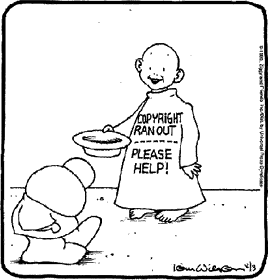
By Lloyd J. Jassin |
Publishing attorney Lloyd Jassin has been writing and speaking about the termination clause for more than two years. He was a major source for an August 2011 PW story on the clause and what it could mean for the book industry. With the first authors able to opt out of old contracts starting in January 2013, PW asked Jassin for a reminder about the termination provision and how it is triggered.
When the Copyright Act was passed in 1976, little thought was given to the future impact of an esoteric provision that gave individual authors the “option” to terminate book contracts and “recapture control” of their copyrights. This provision was designed to protect against bad deals for authors—and is intended to aid authors who signed contracts with little bargaining power and who were not aware of the potential future value of their work. Accordingly, Congress embedded in the Copyright Act a “reset button” for every post-1977 contract, which, when activated 35 years after a contract was signed, returns ownership and control of the copyright to the author or author’s heirs.
This means that, starting in 2013, authors and their heirs or estates will be able to terminate virtually any publishing contract entered into on or after January 1, 1978. While some authors will use this powerful right to reclaim ownership and control of their books, others will leave their publishing contracts intact, but extract more favorable terms for doing so.
Given that 35-year “reset button,” the first author termination right to vest began taking effect on January 1, 2013. There is, however, a very specific process that must be followed in order for authors to successfully reclaim control of their copyrights. To successfully terminate the copyrights, holders must provide “legally sufficient” termination notices, which need to be sent and recorded. What is meant by legally sufficient? To give a precise summary, you have to know that grants signed after 1977 can be terminated during a five-year window starting 35 years from the date the author-publisher agreement was signed. Since termination notices can go out as early as 10 years before the effective date of termination, or as late as two years prior, notices for 1978 works can be served as late as 2016. To complete the termination, the notice must also be recorded with the Copyright Office. Boring stuff, until you get the big picture.
This powerful “re-valuation” mechanism, the termination, trumps written agreements—including valid and duly signed author contracts or licenses which state they are in perpetuity.
While exceedingly complex, no one should underestimate the impact this termination process is already having on thepublishing industry. For example, to avoid losing valuable backlist titles, publishers must, on a rolling basis, respond in a timely manner to notices of termination, and renegotiate contracts entered into 35 years ago. Ergo, 2013 will simultaneously be cannibalistic, with publishers looking to take over backlists from competitors, and liberating for authors and agents, who have unprecedented publishing options available to them given the plethora of new digital distribution platforms. To that end, we will see continued legal skirmishes, as publishers increase efforts to retain copyright. We need look no further than the recent case involving Penguin and the Steinbeck estate, where the publisher successfully challenged the recapture of copyrights by an author’s family.
With the exception of true works for hire, it is not hypothetical speculation to say that every author contract entered into on or after January 1, 1978, is subject to termination. But authors cannot delay, because failure to send a timely (or properly drafted) notice can be the end of the road for those wishing to recapture control of their books. Because these notices must conform to strict legal requirements prescribed by statute, there are many traps for the unwary author or heir, affording publishers opportunities to challenge deficient or late notices.
A Bigger Bite of the Backlist
While this article focuses on 1978 and beyond, books published 56 and 75 years ago are also subject to copyright recapture under a less publicized, but equally powerful, section of the 1976 Copyright Act. For example, in 2008, the U.S. Court of Appeals for the Ninth Circuit returned rights to the 1938 children’s story Lassie Come Home to the author’s family. Unlike the “35-year rule,” here the key date was the date of copyright, not the date the contract or license was signed. In this instance, Congress thought it was fair to award the additional term of copyright conferred by the controversial Copyright Term Extension Act to authors and their families, not their publisher partners. Like the 35-year rule, it is the author’s responsibility to understand whether he or she is eligible to terminate.
Copyright used to be an esoteric subject. That is no longer the case. In 2013, legacy authors, or their survivors, will be asking for explanations as to why they shouldn’t terminate their book contracts. To retain backlist titles, publishers will have to accept that these older titles are going to generate less revenue on a per unit basis. One certainty as a result of this: the price of doing business in publishing is going up in 2013.
The Termination Clause
The claim system works on a 35-year plan. Provided certain conditions are met, a publishing contract can be terminated during a five-year window, which begins 35 years after initial publication, or 40 years from the date the contract was signed. The termination right applies to any book published in or after 1978. Taking a work published in 1978 as an example, the earliest the termination right could take effect is 2013 (since it takes two years after filing to get the rights back), but the latest a termination notice could be filed is 2016, in order to fall within the five-year eligibility window (because the window expires in 2018).
Lloyd J. Jassin is a copyright attorney and adjunct professor at the NYU-SCPS Center for Publishing. He blogs at www.copylaw.org.

Published on February 11, 2013 00:00
February 10, 2013
Be at the Next Author 101 University March 7 - 10 Los Angeles


Is your book written yet? If its not... do you know about the amazing benefits being a published author can bring to your business?
If your book is written, is it a bestseller yet?
If it is a bestseller, is it getting you the opportunities you'd dreamed of?
My friend, Rick Frishman has helped thousands of authors find the secrets they need to get their books published and make their dreams come true. And he can help you too.
For the last eleven years, Rick has put on an event called Author 101 University.
New and established authors from around the globe all come together in one ballroom to learn from some of the world's leading marketing and publishing experts.
Everyone has a lot of fun and most importantly, everyone walks away with what they need so they can grow their success as an author.
Come to Rick's next Author 101 University. Here's what can happen for you there...In one weekend, you'll:
* Connect with literary agents who want to represent you
* Get your new book published or your old book revitalized
* Make your book a bestseller
* Learn how to turn your online promotions into huge
exposure (and sales)
* Transform your message into a mega success business
* Network with truly amazing people - Author 101 University
consistently draws a great group
* And so much more...
Your dream doesn't have to be just a dream. Learn More Here

Published on February 10, 2013 00:00
February 9, 2013
Story Merchant Client Dennis M. Walsh - Barnes and Noble Book Signing February 16th
Published on February 09, 2013 00:00
February 8, 2013
Good News From the Melting Pot by Kenneth John Atchity

 I don't know about you, but I'm tired of bad news about how America is going to hell in a hand basket and that, with Obama back in office, "I have great doubts about the future of our country." There's just too much evidence that, little by little, the country, and the world itself, is slowly but surely getting better. Not to say we shouldn't be concerned about the greed, bellicosity, intransigence, and environmental havoc all around us. But even our awareness of these troubling issues is a vast improvement over the communications ignorance human beings were accustomed to until the recent century.
I don't know about you, but I'm tired of bad news about how America is going to hell in a hand basket and that, with Obama back in office, "I have great doubts about the future of our country." There's just too much evidence that, little by little, the country, and the world itself, is slowly but surely getting better. Not to say we shouldn't be concerned about the greed, bellicosity, intransigence, and environmental havoc all around us. But even our awareness of these troubling issues is a vast improvement over the communications ignorance human beings were accustomed to until the recent century.Aside from the sheer diversity apparent from all angles during the Democratic National Convention and the incontestable triumph of diversity in the ensuing election, three recent news flashes in particular make me hugely optimistic about the future of this great country, despite the doldrums we've all been experiencing the last few years:
(1) Immigration reform is now front and center, not only with Democrats but also with Republicans.
(2) For the first time in history, fewer than 50 percent of Americans claim to be Protestant Christians;
(3) For the first time, Asians outnumber Hispanics as immigrants to the United States.
What these flashes tell us is that the "melting pot" is alive and well and vigorously doing its job as, if you'll excuse the mixed metaphor, the Petrie dish for a more homogenized and more motivated U.S. citizenry.
The Republicans' overnight embrace of the need for a fairer, more tolerant, approach to immigration is based on acknowledging the reality that the Grand Old Party lost this presidential election by burying their heads in the sands of an all-white America that never even ever existed -- except in the heads of their most benighted right wing faction. It wasn't a coalition of women, Hispanics, African-Americans, Asians, and gays that ushered Obama back into the White House. It was the changing profile of America itself, toward embracing plurality as our primary national characteristic: e pluribus unum. Out of many we are one.
The dramatic drop-off in the number of Americans who claim to be Christians is the ultimate proof that our founding fathers' vision of a tolerant nation, where all are free to worship as their conscience dictates, is finally bearing fruit. I have no quarrel with "In God We Trust." It's not the word "God" that stands against the realization of universal fellowship; it's the engrained belief that "my God" is the only God, and that "you and your God" will surely be cast into outer darkness -- by the sword, if necessary. What a dismal irony that pro-lifers are willing to kill. Religious wars -- whether initiated by Christians or Muslims, Romans or Nazis -- have slaughtered more human beings by far than any wars fought over territory. True freedom of worship can only exist when the most adamant fanatics are willing to grant you the right to believe in whoever or whatever you want to believe in. Why in the world would you not grant others the right you're willing to die for? So it's good news that Christians are no longer in the majority. Their fundamentalists' attempt to hijack the United States government simply no longer has the votes. Thank God.
The increase in Asian migration proves that the allure of America as a land of opportunity and upward advancement, affects the most educated of races in the world -- and Asian education by far exceeds our own. Without the accelerated Hispanic immigration of the past 30 years our country would have a crippled infrastructure, since the price of union labor has made routine work requirements economically unfeasible at the lower end. We should be grateful for incoming workers who truly believe in the work ethic! A few years ago, four or five states had "significant Latino populations," according to the Conference Board's "The Hispanic Market in 2010." Today, over 30 states have significant Hispanic populations. Yummy burritos are now as available as much in New Hampshire as in the Southwest. Increasingly Hispanics are numbered among the country's governors, mayors, and congressmen -- and form the brightest hope for re-stabilizing the dysfunctional and decentralized American family unit. Why would Hispanics not be the fastest-growing financial segment of the U.S. population?
But the increase in Asians, including Indians, means that they, too, recognize the unparalleled opportunity offered here in professions like medicine, dentistry, pharmacy, and institutions of higher learning. They come ready to provide healthy competition with our home-grown latchkey kids which, I fervently hope, will eventually shake them from their all too common lethargy, apathy, entitlement, despair, indolence, and wavering belief in the American dream.
Hispanics believe in the American dream. Asians believe in the American dream. Africans believe in the American dream. More and more Muslims believe in the American dream. They come here seeking opportunity that simply doesn't exist where they come from. If that doesn't prove the power of the American dream I don't know what does.
As Asians marry Caucasians, Caucasians Hispanics, African Americans Asians, Muslims Hispanics, Hispanics Asians, African Americans Caucasians, we're rapidly approaching the day of "coffee-coloured people by the score" (to use the words of Cook & Greenaway's quaint 1970s song) who, in another generation or two, may not even remember the hideous bigotry that still rules so much of the less progressive regions of this country.
I don't know about you, but to me this is all invigorating good news. Change toward tolerance, change toward human brotherhood, change toward universal understanding is a good thing. It's change toward re-embracing the eloquently simple words of the First Amendment: "Congress shall make no law respecting an establishment of religion, or prohibiting the free exercise thereof." Remember the lyrics from South Pacific:
"You have to be taught to hate and fear."
Let's teach our children, instead, to communicate, to listen, to understand and love.
_______________________________
Dr. Kenneth Atchity, former Fulbright professor to the University of Bologna and professor of comparative literature and communications at Occidental College, is a producer, writer, and literary manager. His recent first novel, The Messiah Matrix http://messiahmatrix.com, is an adventurous exploration of how our world might soon outgrow organized religion.

Published on February 08, 2013 00:00
February 7, 2013
Book Reviews by Elizabeth A. White Reviews Rudy Yuly's Sparkle
Sparkle by Rudy Yuly
Elizabeth A. White
 Feeling
Feeling
bad about lousy business was equivalent to wishing someone would get
killed. The job was ghoulish enough as it was. – Joe Jones
Death is in the news every day, and if people stop to give it a
second thought they most likely think of the void left in the lives of
the living, the emotional mess it creates when someone dies or is
killed. Very few people, however, think about the nuts and bolts of
death–the literal mess it makes.
Brothers Joe and Eddie Jones have not only thought about it, they’ve
made it their business. Literally. Sparkle Cleaners, their Seattle-based
janitorial service, specializes in crime scene cleanups. Theirs is a
unique tag team, with Joe acting as the face of the business and Eddie
the actual cleanup man. And anyone who’s ever used Sparkle Cleaners will
tell you, no one can clean a crime scene like Eddie.
He’s so good, Sparkle Cleaners gets the inside line on jobs from
members of the Seattle PD, including Detectives Louis and Bjorgesen.
When they call Joe to schedule the cleanup of a triple murder–a husband,
wife, and their six-year-old daughter–they couldn’t possibly have
foreseen the chain of events that would unfold…or that it would get even
more complicated when Sparkle was assigned to the cleanup of a
seemingly unrelated massacre of six people at a club in Chinatown.
But what no one knows, not even Joe, is that Eddie’s gift goes far
beyond being able to erase the physical signs of death. Due to a trauma
the two suffered when they were young children, Eddie has retreated into
his own little world, one which presents to everyone else as severe
autism. But while people think Eddie is virtually uncommunicative, what
they don’t realize is that he communicates with the dead. At every
cleanup scene he encounters the spirit/ghost of the person who died, and
only by his erasing the physical signs of their death are they able to
move on to the next world.
Things get weird, even for Eddie, when at the scene of the triple
homicide the young girl refuses to leave even after Eddie’s finished
cleaning. Not only does she refuse to leave, she reveals to Eddie a
piece of evidence the police missed, and makes him promise to “make the
catch.” Eddie tries to ignore the situation, but when it happens again
at the Chinatown club he knows he must act, and in doing so is forced to
confront the very trauma from his past which bestowed his gift upon
him.
Rudy Yuly has created something very special in Sparkle, a
book which works on several different levels. First and foremost, this
story is about relationships: brother to brother, partner to partner,
man to woman, living to dead. It’s about what ties people to one
another–be it love or loyalty or obligation–and what happens when events
occur which stress those ties that bind. Joe wants to be a good
brother, knows Eddie needs him, but still can’t help but resent him a
little for putting Joe in a situation where he can’t lead a
normal life because of Eddie’s condition. And though to the outside
world it’s Joe who’s taking care of Eddie, endearingly, from Eddie’s
perspective it’s very much the opposite:
Yuly exquisitely captures the frustration and awkwardness the
brothers feel trying to deal with one another, as well as that which
they both encounter while interacting with the women in their lives: Joe
with a waitress at his favorite bar whom he’s desperately attracted to,
Eddie with the worker at the local zoo who takes him on a tour every
Saturday as part of his rigid routine. Having dealt mostly with only
each other for decades, their social skills–though for very different
reasons–are highly suspect, and painfully realistically portrayed by
Yuly.
The book also unfurls two different mysteries over the course of the
story, that of who killed the victims at the two cleanup sites, as well
as what exactly happened to Joe and Eddie when they were kids that
caused Eddie to retreat into his private world. Yuly doles out clues to
the killer’s identity and motives, and flashbacks to that fateful day in
the boys’ lives, at just the right pace, slowly and confidently weaving
all the treads together to create a complete tapestry. Yuly even
manages to throw in a little curve at the end, one which only adds to
the book’s overall reflection on relationships and the impact death can
have on the living.
Released independently last year, Sparkle may well have
slipped past under your radar, but this offbeat, lovingly written work
is one I highly recommend you pick up. I may have missed it in 2012, but
Sparkle has declared itself ready to fight for a spot on my Top 10 of 2013 list, that’s for sure.
Sparkle is available at Amazon and Lulu.
Rudy Yuly is a writer, journalist and editor
with over 20 years experience. He has authored fiction and nonfiction
books including The World Business Desk Reference, published by Times Mirror/Irwin Professional, and Sparkle,
a novel represented by AEI. He has worked as a ghostwriter, researcher
and editor on a wide range of fiction and nonfiction projects including
true crime author Gregg Olsen’s breakout 2003 New York Times bestseller Abandoned Prayers,
and contributed to recent offerings by nonfiction author Michelle
Gentille and novelist Joseph Cervasio. You can learn more about Rudy and
his work by visiting his website.

Elizabeth A. White
 Feeling
Feelingbad about lousy business was equivalent to wishing someone would get
killed. The job was ghoulish enough as it was. – Joe Jones
Death is in the news every day, and if people stop to give it a
second thought they most likely think of the void left in the lives of
the living, the emotional mess it creates when someone dies or is
killed. Very few people, however, think about the nuts and bolts of
death–the literal mess it makes.
Brothers Joe and Eddie Jones have not only thought about it, they’ve
made it their business. Literally. Sparkle Cleaners, their Seattle-based
janitorial service, specializes in crime scene cleanups. Theirs is a
unique tag team, with Joe acting as the face of the business and Eddie
the actual cleanup man. And anyone who’s ever used Sparkle Cleaners will
tell you, no one can clean a crime scene like Eddie.
He’s so good, Sparkle Cleaners gets the inside line on jobs from
members of the Seattle PD, including Detectives Louis and Bjorgesen.
When they call Joe to schedule the cleanup of a triple murder–a husband,
wife, and their six-year-old daughter–they couldn’t possibly have
foreseen the chain of events that would unfold…or that it would get even
more complicated when Sparkle was assigned to the cleanup of a
seemingly unrelated massacre of six people at a club in Chinatown.
But what no one knows, not even Joe, is that Eddie’s gift goes far
beyond being able to erase the physical signs of death. Due to a trauma
the two suffered when they were young children, Eddie has retreated into
his own little world, one which presents to everyone else as severe
autism. But while people think Eddie is virtually uncommunicative, what
they don’t realize is that he communicates with the dead. At every
cleanup scene he encounters the spirit/ghost of the person who died, and
only by his erasing the physical signs of their death are they able to
move on to the next world.
Things get weird, even for Eddie, when at the scene of the triple
homicide the young girl refuses to leave even after Eddie’s finished
cleaning. Not only does she refuse to leave, she reveals to Eddie a
piece of evidence the police missed, and makes him promise to “make the
catch.” Eddie tries to ignore the situation, but when it happens again
at the Chinatown club he knows he must act, and in doing so is forced to
confront the very trauma from his past which bestowed his gift upon
him.
Rudy Yuly has created something very special in Sparkle, a
book which works on several different levels. First and foremost, this
story is about relationships: brother to brother, partner to partner,
man to woman, living to dead. It’s about what ties people to one
another–be it love or loyalty or obligation–and what happens when events
occur which stress those ties that bind. Joe wants to be a good
brother, knows Eddie needs him, but still can’t help but resent him a
little for putting Joe in a situation where he can’t lead a
normal life because of Eddie’s condition. And though to the outside
world it’s Joe who’s taking care of Eddie, endearingly, from Eddie’s
perspective it’s very much the opposite:
It was tough on Eddie. He had to take care of Joe all the
time, walking him through rituals he should be totally comfortable
with. Joe couldn’t seem to get it, always trying to change stuff that
needed to stay the same, like last night. When it really was time for
something to change–like today–Joe would hang on to it with all his
might.
Yuly exquisitely captures the frustration and awkwardness the
brothers feel trying to deal with one another, as well as that which
they both encounter while interacting with the women in their lives: Joe
with a waitress at his favorite bar whom he’s desperately attracted to,
Eddie with the worker at the local zoo who takes him on a tour every
Saturday as part of his rigid routine. Having dealt mostly with only
each other for decades, their social skills–though for very different
reasons–are highly suspect, and painfully realistically portrayed by
Yuly.
The book also unfurls two different mysteries over the course of the
story, that of who killed the victims at the two cleanup sites, as well
as what exactly happened to Joe and Eddie when they were kids that
caused Eddie to retreat into his private world. Yuly doles out clues to
the killer’s identity and motives, and flashbacks to that fateful day in
the boys’ lives, at just the right pace, slowly and confidently weaving
all the treads together to create a complete tapestry. Yuly even
manages to throw in a little curve at the end, one which only adds to
the book’s overall reflection on relationships and the impact death can
have on the living.
Released independently last year, Sparkle may well have
slipped past under your radar, but this offbeat, lovingly written work
is one I highly recommend you pick up. I may have missed it in 2012, but
Sparkle has declared itself ready to fight for a spot on my Top 10 of 2013 list, that’s for sure.
Sparkle is available at Amazon and Lulu.
Rudy Yuly is a writer, journalist and editor
with over 20 years experience. He has authored fiction and nonfiction
books including The World Business Desk Reference, published by Times Mirror/Irwin Professional, and Sparkle,
a novel represented by AEI. He has worked as a ghostwriter, researcher
and editor on a wide range of fiction and nonfiction projects including
true crime author Gregg Olsen’s breakout 2003 New York Times bestseller Abandoned Prayers,
and contributed to recent offerings by nonfiction author Michelle
Gentille and novelist Joseph Cervasio. You can learn more about Rudy and
his work by visiting his website.

Published on February 07, 2013 00:00
February 6, 2013
Mrs. Kennedy And Me Goes International “BHMA”
Published on February 06, 2013 00:00






